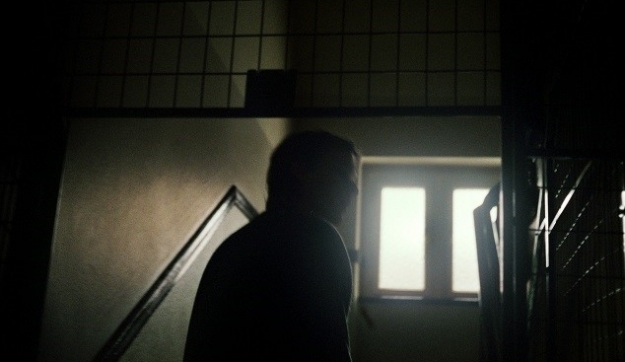An Index Of Metals
AN INDEX OF METALS
Opera by Fausto Romitelli
Directed by Kip Williams
Starring Jane Sheldon
The avant-garde exists to challenge us. So in one sense, An Index Of Metals is an enormously successful piece. In another sense, it’s straight up one of the goddamn weirdest experiences you’ll have in a theatre this month. This, it seems, is how opera is to break into the world of contemporary art – by accessing its every trope.
Described as an ‘electric poem’ by its composer, the late Fausto Romitelli, this staging by Kip Williams enshrines a lone soprano, Jane Sheldon, inside a cubic lighting rig, where she is met by one man portrayed by six. Amidst a libretto wherein she recounts the elements that have betrayed her, she confronts both this man and herself.
Williams’ use of blinding light and silhouettes to open the show is immediately promising. The stage, in fact, is An Index Of Metals' greatest asset, a cube of parcans used to illuminate the figures onstage in bursts, waves and pulses. The flow of light is masterfully tied to the complexities and grotesque distortions of Romitelli’s composition, a Frankenstein’s monster of tortured orchestral elements, synths, electronic and rock instruments.
Sheldon’s performance, at the core of the work, is sublime. She sings with great clarity and emotion Romitelli’s incomprehensible lyrics – which reference “loops of soup” and being “crucified by noise” in lieu of anything tangible – and swings between soprano highs and guttural lows with the control of a master.
Then there are the men, whose contribution is twofold: they present an element of physical threat that colours this reviewer’s perception of the deeper ‘meaning’ of the performance, and they showcase everything that is rote and clichéd in the staging. It seems a performance is simply not ‘modern’ if it doesn’t have superfluous nudity and excessive amounts of stage blood.
Oh, and of course, endless slow walking. Slow walking all night long.
These elements, used overabundantly in this and so many other productions, are frustrating (though often amusing) because they mask something very frightening and very powerful in the potentiality of Williams’ set-up. Romitelli’s wilfully obtuse libretto has been imbued with an emotional sincerity that loses credibility from association with such university-grade ‘high art’ trappings.
The mesh of modern aural and visual elements with classical operatic form makes for a feast of the senses, but one which confuses the palate.
An Index Of Metals was reviewed at Carriageworks on Monday November 16.
Described as an ‘electric poem’ by its composer, the late Fausto Romitelli, this staging by Kip Williams enshrines a lone soprano, Jane Sheldon, inside a cubic lighting rig, where she is met by one man portrayed by six. Amidst a libretto wherein she recounts the elements that have betrayed her, she confronts both this man and herself.
Williams’ use of blinding light and silhouettes to open the show is immediately promising. The stage, in fact, is An Index Of Metals' greatest asset, a cube of parcans used to illuminate the figures onstage in bursts, waves and pulses. The flow of light is masterfully tied to the complexities and grotesque distortions of Romitelli’s composition, a Frankenstein’s monster of tortured orchestral elements, synths, electronic and rock instruments.
Sheldon’s performance, at the core of the work, is sublime. She sings with great clarity and emotion Romitelli’s incomprehensible lyrics – which reference “loops of soup” and being “crucified by noise” in lieu of anything tangible – and swings between soprano highs and guttural lows with the control of a master.
Then there are the men, whose contribution is twofold: they present an element of physical threat that colours this reviewer’s perception of the deeper ‘meaning’ of the performance, and they showcase everything that is rote and clichéd in the staging. It seems a performance is simply not ‘modern’ if it doesn’t have superfluous nudity and excessive amounts of stage blood.
Oh, and of course, endless slow walking. Slow walking all night long.
These elements, used overabundantly in this and so many other productions, are frustrating (though often amusing) because they mask something very frightening and very powerful in the potentiality of Williams’ set-up. Romitelli’s wilfully obtuse libretto has been imbued with an emotional sincerity that loses credibility from association with such university-grade ‘high art’ trappings.
The mesh of modern aural and visual elements with classical operatic form makes for a feast of the senses, but one which confuses the palate.
★★★
An Index Of Metals was reviewed at Carriageworks on Monday November 16.
Post originally printed in The BRAG, available at http://thebrag.com/arts/index-metals



Comments
Post a Comment